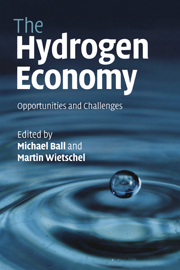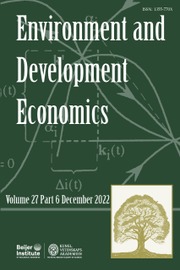The Hydrogen Economy
Responding to the sustained interest in and controversial discussion of the prospects of hydrogen, this book strives to reflect on the perspectives of a hydrogen economy in light of the global energy challenge, in particular the question of how to meet the growing demand for transport energy in the long term and how to secure sustainable energy for transportation. This book stands out from other publications by its emphasis on setting the scene for hydrogen, and the comprehensive coverage of all aspects related to the hydrogen subject. It aims to provide a reference and compendium about hydrogen that should be of interest to anyone who wants to catch up on the status of the hydrogen discussion, look up a specific aspect related to hydrogen, or understand how hydrogen comes off compared to other mobility solutions. The book should appeal to a fairly broad readership: academia, policy makers and industry.
- Assesses the virtues and downsides of hydrogen compared to alternative fuels in the transport sector, enabling readers to have an informed opinion on this controversial issue
- Discusses long-term global hydrogen supply scenarios and contribution to CO2 emissions reduction, increasing awareness of the consequences of the hydrogen economy
- Comprehensive literature review and overview provides a road-map for more detailed reading
Reviews & endorsements
"This is a useful book: it is also a serious book. With twenty-one chapters written by eight main contributors and the two editors and 646 pages, it obviously has substantial content. It is the most comprehensive assessment that I know of the technology and economic prospects for transitioning to a transportation system energized in large part by hydrogen, and of the challenges involved in such a transition. It comes at a time when hydrogen as a future transportation energy source needs to be evaluated at a deeper level than has been done to date. Ten years ago, of the alternatives to petroleum-based fuels, hydrogen wore the green crown: back then, it alone seemed to have the potential for powering fuel cell propelled vehicles with lower greenhouse gas emissions than even improved mainstream technology could provide. Over the past decade, the list of major challenges to the hydrogen transformation has become longer, more detailed and pragmatic, and thus more formidable, as we have learned more about how that transition might be accomplished. Also, the biofuel and electricity options have captured parts of this longer-term “place in the sun.” Thus putting together in a substantive book, a comprehensive and up-to-date summary of where we are in our pursuit of the hydrogen option, has real value." - John B. Heywood, International Journal of Hydrogen Energy, Volume 35, Issue 4
Product details
October 2009Hardback
9780521882163
672 pages
252 × 180 × 34 mm
1.44kg
Available
Table of Contents
- Preface
- 1. Scope of the book Michael Ball
- 2. Why hydrogen? Michael Ball
- 3. Non-renewable energy resources: fossil fuels, supply and future availability Michael Ball
- 4. Non-renewable energy resources: nuclear fuels Michael Ball and Felipe Andrés Toro
- 5. Assessment of the potentials for renewable energy sources Gustav Resch, Anne Held, Felipe Andrés Toro and Mario Ragwitz
- 6. Carbon capture and storage Clemens Cremer
- 7. Energy chain analysis of hydrogen and its competing alternative fuels for transport Werner Weindorf and Ulrich Bünger
- 8. Hydrogen today Martin Wietschel, Michael Ball and Philipp Seydel
- 9. Fundamental properties of hydrogen Maximilian Fichtner and Farikha Idrissova
- 10. Hydrogen production Michael Ball, Werner Weindorf and Ulrich Bünger
- 11. Hydrogen storage Maximilian Fichtner
- 12. Hydrogen distribution Michael Ball, Werner Weindorf and Ulrich Bünger
- 13. Key role of fuel cells Frank Marscheider-Weidemann, Elna Schirrmeister and Annette Roser
- 14. Hydrogen infrastructure build-up in Europe Michael Ball, Philipp Seydel, Martin Wietschel and Christoph Stiller
- 15. Building a hydrogen infrastructure in the US Joan Ogden and Christopher Yang
- 16. Hydrogen and the electricity sector Martin Wietschel, Clemens Cremer and Michael Ball
- 17. Hydrogen corridors Martin Wietschel and Ulrike Hasenauer
- 18. Economic impacts of hydrogen Martin Wietschel, Sabine Jokisch, Stefen Boeters, Wolfgang Schade and Philipp Seydel
- 19. Sustainable transport visions: the role of hydrogen and fuel cell vehicle technologies Martin Wietschel and Claus Doll
- 20. Energy-efficient solutions needed – paving the road for hydrogen Eberhard Jochem
- 21. The future of hydrogen - opportunities and challenges Martin Wietschel and Michael Ball
- Index.






